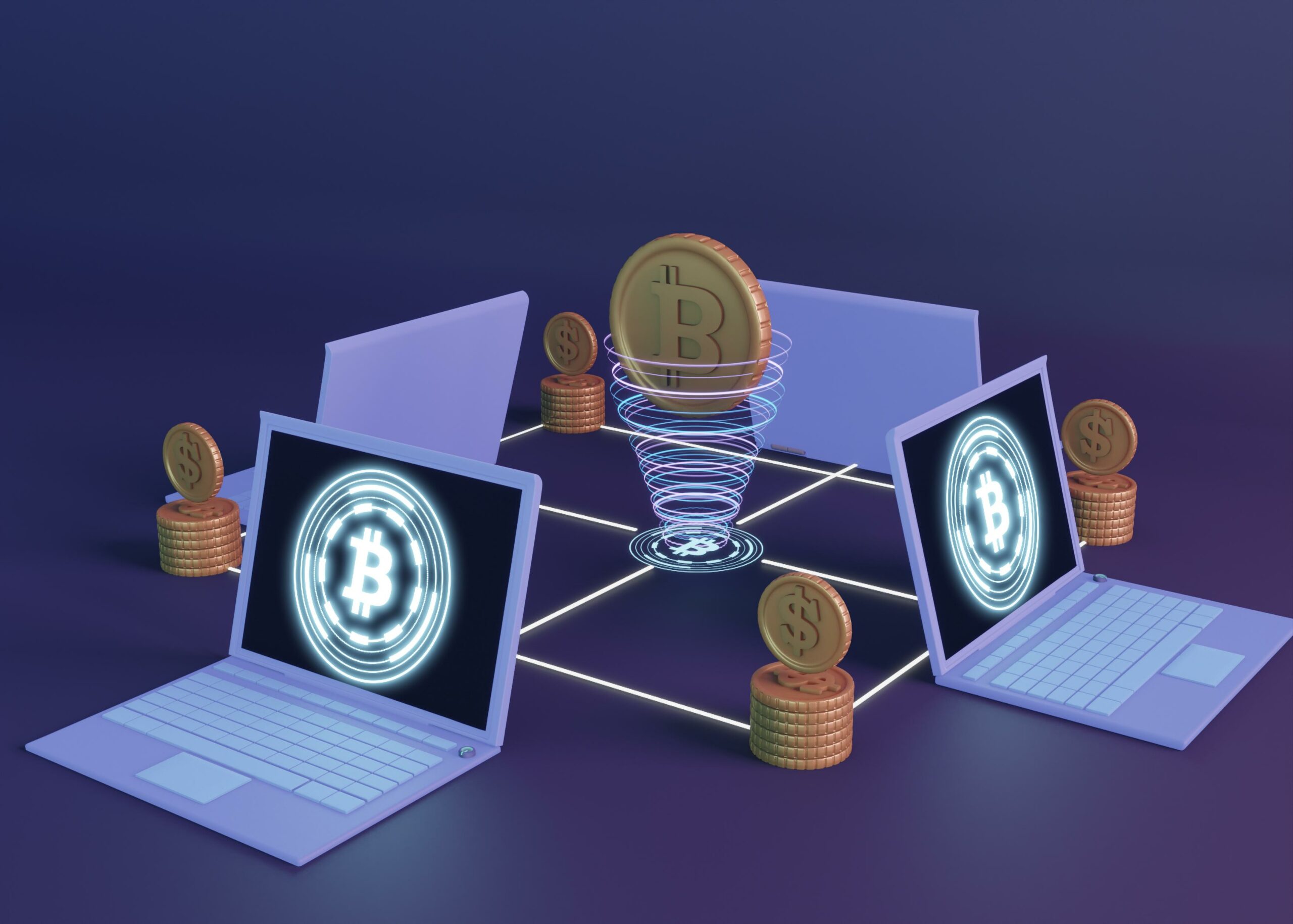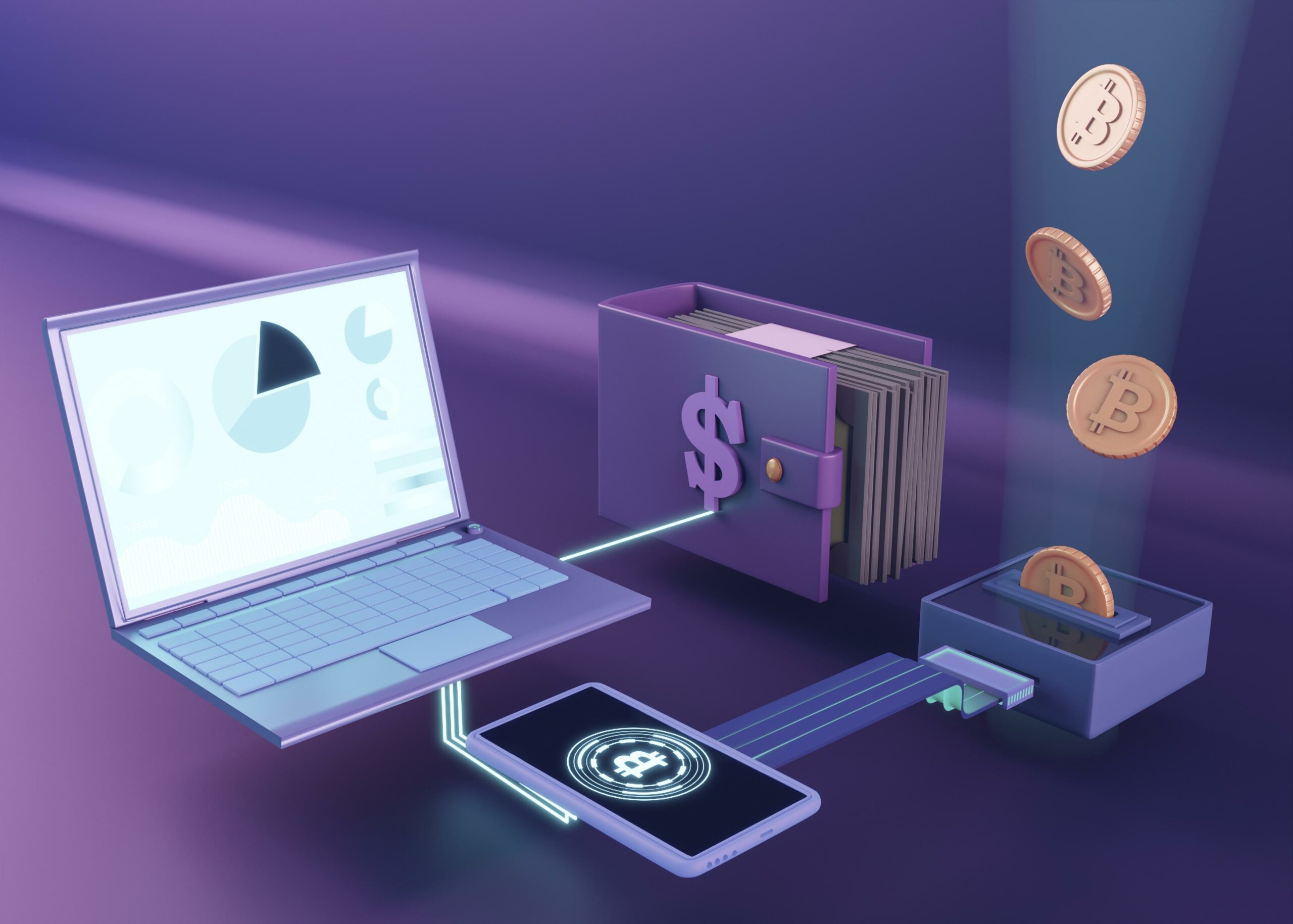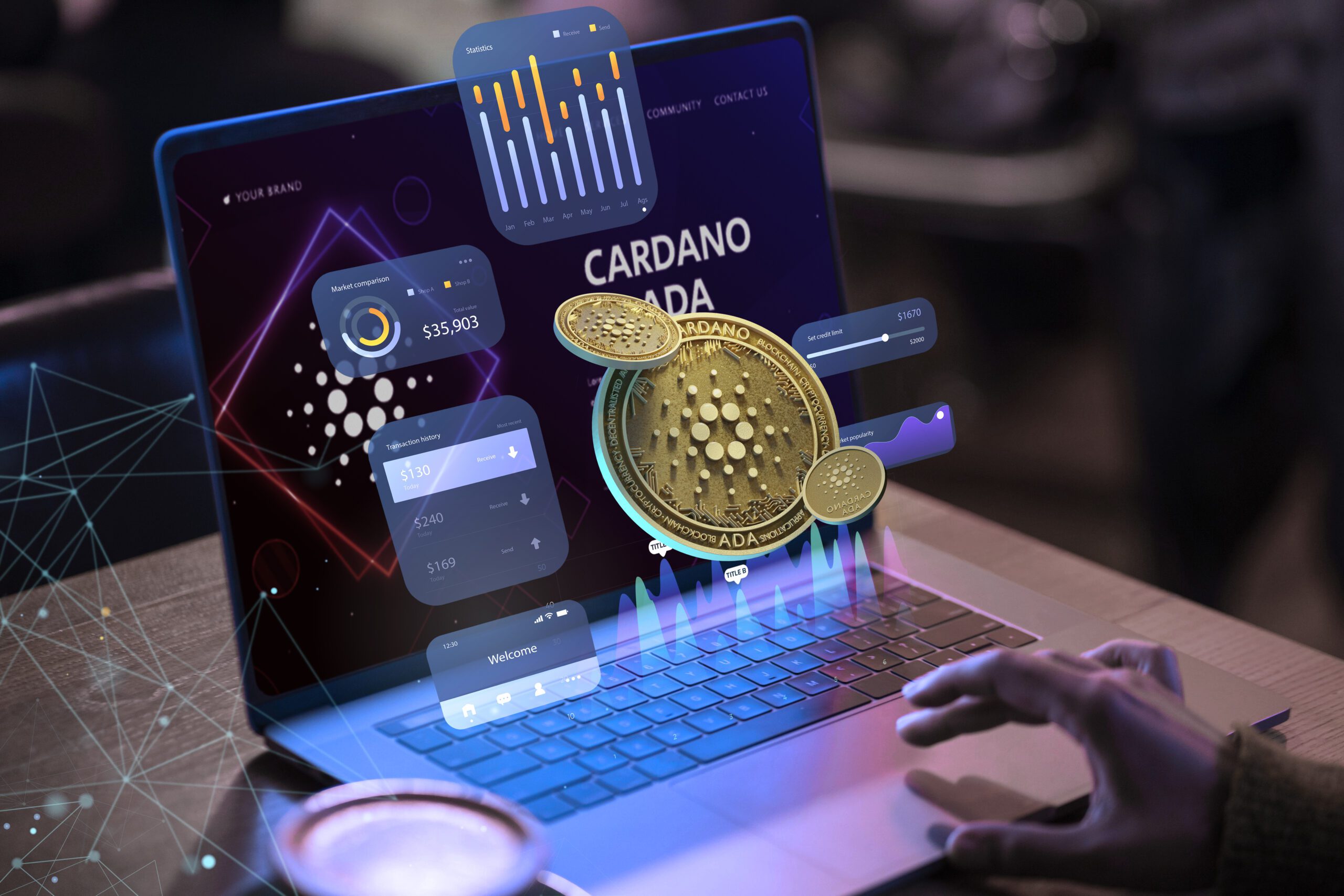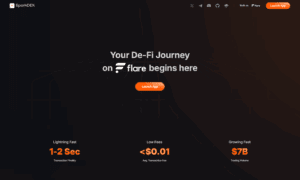The NFT marketplace is a digital platform for buying, selling, and trading Non-Fungible Tokens (NFTs). NFTs are one-of-a-kind digital assets that are maintained on a blockchain and serve as evidence of ownership and validity. Each NFT has its own value and cannot be swapped one for one like cryptocurrencies like Bitcoin or Ethereum. NFT markets that have acquired traction inside the NFT ecosystem.
Here are a few notable NFT markets:
Rarible: Rarible is an Ethereum blockchain-based decentralized NFT marketplace. It enables artists and makers to mint, purchase, sell, and exchange digital assets. Rarible also provides its users with governance privileges via the RARI token.
SuperRare: It is a curated NFT marketplace specializing in digital artwork. It contains limited edition and one-of-a-kind works by artists from all around the world. The artwork featured on SuperRare is distinguished by its exclusivity and scarcity.
Foundation: It is a platform that allows creators to promote and sell their digital artwork as NFTs. It promotes the concept of “creator-centricity” and allows artists to interact with collectors and fans.
NBA Top Shot: It is an officially recognized NFT site that sells digital souvenirs of NBA highlights and moments. It boasts a vast community of basketball fans and has received a lot of attention for its unique approach to digital trading cards.
CryptoPunks: CryptoPunks is a well-known NFT project that features 10,000 randomly generated characters. Each CryptoPunk is a collectible with its own unique qualities and attributes. CryptoPunks rose to popularity as a result of its historical relevance in the NFT arena.
Binance NFT Marketplace: One of the leading cryptocurrency exchanges, Binance, has opened its NFT marketplace. It enables artists, makers, and collectors to mint, purchase, and sell NFTs across various blockchain networks.
Axie Marketplace: Axie Infinity is a blockchain-based game that involves Axies, which are digital creatures. The Axie Marketplace enables gamers to trade, buy, and sell Axies as NFTs, allowing for a thriving secondary market for these virtual pets.
OpenSea: It is a leading decentralized marketplace for Non-Fungible Tokens (NFTs) and has emerged as a prominent player in the NFT ecosystem. It serves as a platform where users can buy, sell, and trade a wide range of digital assets, including digital art, virtual collectibles, gaming items, domain names, and more. You can also reap more benefits from this opportunity by developing your own OpenSea clone
The Advantages of NFT Marketplaces:
Ownership and Validity:
NFT markets offer a transparent and safe method of establishing ownership and confirming the validity of digital assets. Each NFT has a distinct digital signature that is linked to a blockchain, making it tamper-proof and establishing a transparent chain of ownership. Artists, makers, and collectors gain from this by confirming the authenticity and uniqueness of their digital creations. Here is a list of NFT Marketplace Development Companies that can help you to create an NFT platform for you.
New Revenue Streams:
NFTs provide artists, musicians, content providers, and other creative folks with new ways to monetize their work. They may sell their digital art, music, films, or other one-of-a-kind products directly to customers via NFT markets, rather than depending on traditional gatekeepers like galleries, record companies, or production studios.
NFTs can feature smart contracts that automatically send royalties to the original developer anytime their NFT is purchased in the secondary market. This is a big benefit for artists since they may keep a percentage of the income even after the initial sale, pushing them to create more value and sought-after pieces.
Worldwide Reach and Accessibility:
Because NFT markets are online, artists may reach a worldwide audience. Artists may display their work to potential purchasers from all over the world, overcoming geographical limitations and broadening their market reach. Artists and creators may benefit from increased visibility, recognition, and revenue potential as a result of this worldwide accessibility.
Empowering Creators:
NFT markets empower creators by giving them a direct and decentralized platform to promote and sell their digital material. They may reach a worldwide audience without the need for conventional gatekeepers or intermediaries, giving artists, musicians, and other creators more control over their work and the cash earned by it.
Expanded Revenue Streams:
NFTs provide creators with new income sources that go beyond established techniques. Creators may receive cash from each sale and perhaps royalties from later resales in the secondary market by tokenizing their work and selling it as NFTs. This opens up new revenue prospects, particularly for digital artists who traditionally struggled to market and protect their digital works.
Enhanced Collecting Experience:
NFT markets improve the collecting experience by offering a digital platform for collectors to locate, acquire, and exchange unique digital goods. Collectors may create digital collections of art, music, virtual products, and other items, with the blockchain providing evidence of ownership and authenticity. Because blockchain technology is immutable, it guarantees the scarcity and uniqueness of each gathered object, making the collecting experience more transparent and trustworthy.
Global Marketplace Access:
NFT markets remove geographical constraints, allowing players from all over the world to acquire and sell digital assets. This worldwide accessibility broadens both producers’ and collectors’ commercial reach, allowing them to engage with a broader audience and tap into international demand. It fosters cross-cultural dialogue and the identification of rising artists from other locations.
Democratization of Art and Culture:
NFT markets help to democratize art and culture by giving budding artists a platform to get attention and acclaim. It reduces the entrance barriers, allowing artists from various backgrounds to present their work and perhaps achieve financial success without relying primarily on traditional art institutions or established galleries. It also gives marginalized artists a voice and allows them to reach a larger audience, fostering diversity and inclusiveness in the art industry.
Interoperability and Interconnectivity:
Because NFTs may be utilized across several platforms and applications, they enable interoperability and interconnectivity among diverse digital ecosystems. This implies that an NFT made on one marketplace may be used or shown on other platforms, virtual worlds, or games that are compatible. This compatibility increases the usability and value of NFTs while also broadening their possible use cases.
NFT Marketplace Use Cases
Digital Art and Collectibles:
NFTs have transformed the art industry by allowing artists to tokenize and sell their digital artworks as one-of-a-kind collectibles. Illustrations, animations, virtual sculptures, and immersive virtual reality experiences are all examples of digital art. Collectors may buy these NFTs with confidence that they will have exclusive and verifiable ownership of the artwork.
NFTs are widely used in the gaming industry, where users may buy, sell, and exchange in-game objects, characters, virtual real estate, and other digital assets. NFTs enable gamers to genuinely control their virtual assets, allowing them to transfer or sell them outside of the gaming ecosystem.
Event Tickets and Experiences:
NFTs may be used to produce one-of-a-kind digital tickets for events, concerts, and conferences. These digital tickets may contain additional advantages or special NFT experiences, such as artist meet-and-greets or access to VIP areas. NFTs improve ticket security, reduce fraud, and provide additional value to event goers.
Protection of Intellectual Property:
NFTs can be used to safeguard and monetize intellectual property like as patents, trademarks, and copyrights. Creators and owners may create evidence of ownership, track licensing rights, and earn royalties for their intellectual property by tokenizing these assets as NFTs.
Virtual Real Estate:
NFT markets allow for the tokenization and trade of virtual real estate within virtual worlds or metaverses. Users can participate in the burgeoning digital real estate market by purchasing and selling virtual land or properties as NFTs. This enables developers, investors, and enthusiasts to participate in virtual property ownership and development.
Licensing of Intellectual Property:
NFTs can be used to license intellectual property such as music rights, patents, or trademarks. Tokenizing intellectual property assets as NFTs allows creators and owners to establish the terms and conditions of usage. NFT markets provide as a framework for licensing these assets and tracking royalties, ensuring that artists are compensated fairly for their intellectual property.
Ticketing and Event Experiences:
By offering safe and verified digital tickets for events, NFTs have the potential to revolutionise the ticketing business. Tickets based on NFT can include one-of-a-kind experiences such as access to exclusive areas, backstage passes, or virtual meet-and-greets. NFT markets simplify the ticketing process, eliminate fraudulent tickets, and provide event goers with superior experiences.
Digital Identity and Reputation:
NFTs can be used to represent and validate digital identity and reputation. Individuals can create a portable and readily verified digital identity by tokenizing identity-related attributes such as credentials, achievements, or endorsements. NFT markets enable users to purchase, sell, and display these digital identity tokens, opening up new avenues for reputation management and online validation.
Fan Engagement and Collectibles:
NFT markets provide a one-of-a-kind opportunity for fans to interact with their favorite artists, celebrities, or companies. Limited-edition NFTs can be created by artists and influencers as souvenirs, goods, or exclusive content, allowing fans to own a piece of their favorite creators’ digital world. This strengthens the bonds between creators and their audiences while providing fans with a physical and valued digital object.
Tokenized Assets and Investment Opportunities:
NFT markets enable the tokenization and trading of physical assets. Tokenizing actual assets like real estate, luxury products, or rare collectibles is one example. These tokenized assets may subsequently be exchanged on NFT platforms, allowing those who may not have had access to traditional asset markets to invest.
Brand Engagement and Marketing:
NFT marketplaces provide companies with a new method to interact with their target audiences and execute marketing campaigns. To reward loyal consumers, brands can produce limited-edition NFTs connected to their products or services, as well as organize promotions or giveaways. This increases brand loyalty, develops buzz, and produces a one-of-a-kind brand experience in the digital world.
The Cost of NFT Marketplace in the United States
The NFT marketplace development cost can vary greatly based on a variety of criteria such as the complexity of the platform, features, design, development team rates, and more. A simple NFT marketplace might cost between tens and hundreds of thousands of dollars. However, more complicated and feature-rich systems might be more expensive.
It is vital to note that the creation of an NFT marketplace entails blockchain integration, smart contract development, safe digital asset storage, user identification, and a user-friendly interface. Continuous maintenance, security, and marketing activities should also be considered.
It is best to speak with expert blockchain developers or software development firms to receive a more exact cost estimate.

Worker figures helping dig coin money on dollar note background – worker figures model with money seeking business concept
Conclusion
As NFT markets expand, new options for artists, collectors, investors, and brands to engage in the digital economy and impact the future of digital ownership emerge. The capacity to tokenize and trade unique digital assets on a global scale has democratized access to art, culture, and financial possibilities while also offering a safe and transparent platform for digital asset exchange.
NFT markets are at the vanguard of a digital revolution, altering the notion of ownership, allowing new kinds of creation, and encouraging unique digital experiences due to their decentralized and irreversible nature. As technology progresses and usage grows, we can expect further innovation and growth in the field of NFT markets, opening up even more opportunities for the digital ecosystem.



































